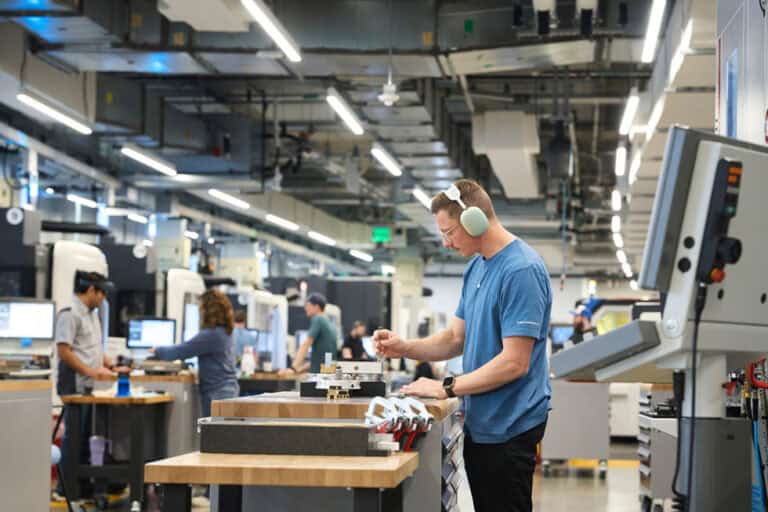Apple is digging deep into its pockets to create more “American innovation” and new manufacturing capacity. As such, Apple is one of the companies presenting a plan early this year to realize more in its home country.
To get the plans off the ground, $500 billion (€477.6 billion) will be available over the next four years. The money will go mainly to AI development, silicon engineering and a new manufacturing facility in Houston for servers to support Apple Intelligence. This will benefit thousands of U.S. vendors, data centers and corporate facilities. The money would also benefit educational institutions, where the goal is to train the next generation of employees.
“We are bullish on the future of American innovation, and we’re proud to build on our long-standing U.S. investments with this $500 billion commitment to our country’s future,” explained Apple CEO Tim Cook. “From doubling our Advanced Manufacturing Fund, to building advanced technology in Texas, we’re thrilled to expand our support for American manufacturing.”
Tip: Apple in talks with EU on Apple Intelligence rollout
Scaling up operations
A key part of the plans is a new server plant in Houston. This more than 23,000 square feet facility should open in 2026 and will produce servers used in data centers to power Apple Intelligence. Apple explains that currently, these servers are still manufactured outside the United States. To realize this new location, the tech company will partner with Foxconn.
Apple is also doubling its Advanced Manufacturing Fund from $5 billion to $10 billion. Established in 2017, this fund aims to stimulate innovation and high-quality manufacturing in America. Part of this will go toward manufacturing advanced chips at TSMC’s Fab 21 facility in Arizona.
The third major part of the plans is the intention to hire about 20,000 people over the next four years. These will be primarily in research and development (R&D), silicon engineering, and AI development. R&D across the country should benefit from the growing workforce. Think custom silicon research, hardware engineering, software development, artificial intelligence, and machine learning.
Concentration
Donald Trump taking office is prompting companies to look at how they can attract more business to the U.S. Apple currently relies heavily on suppliers and manufacturers in Asia, but that could become a future barrier. Indeed, the U.S. government has announced new import tariffs of 10 percent, with even a 25 percent duty threatened for chip imports. In theory, this makes components considerably more expensive, which in turn drives up the final price of Apple products. For the new production sites in the U.S., the company does cooperate with Asian suppliers, so Foxconn and Arizona are among them.
Current plans focus mainly on the next four years, exactly the maximum remaining years of Trump’s reign.
Tip: 500 billion Stargate AI infrastructure puts U.S. in strong position
